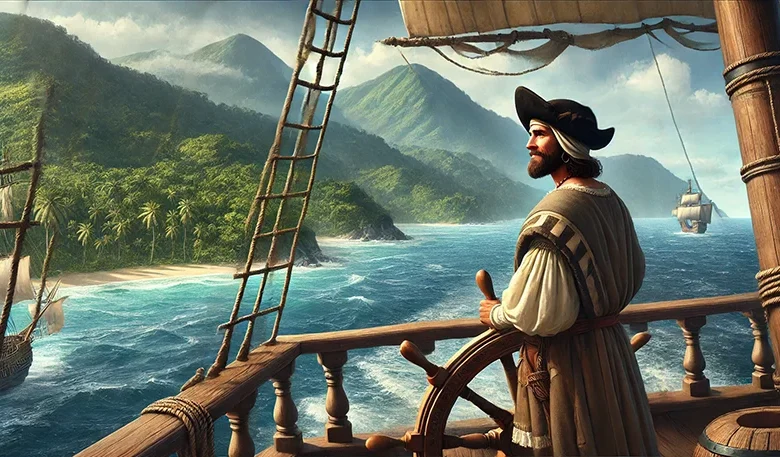Christopher Columbus and Dominica

Christopher Columbus and Dominica have a historical connection dating back to November 3, 1493, when Columbus sighted the island during his second voyage to the Caribbean. Naming it “Dominica” after the Latin word for Sunday (the day he discovered it), Columbus and his crew encountered the island inhabited by the Kalinago people. The Interior of Dominica, with its rugged landscape and strong indigenous resistance, deterred European settlement for several years.
About Christopher Columbus
Christopher Columbus was neither British nor French. He was Italian by birth, originating from the Republic of Genoa. However, his voyages, including the one that led him to sight Dominica in 1493, were sponsored by the Spanish monarchy under the rule of King Ferdinand and Queen Isabella of Spain. During his second voyage under Spanish patronage, he encountered Dominica, and his exploration was driven by Spain’s ambitions to expand its empire and control new territories in the Caribbean.
European Exploration and Naming of Dominica
Columbus’s arrival marked the beginning of European exploration in Dominica, but colonization efforts did not take hold until much later. The island remained a Kalinago stronghold until the 1600s, when the French and British began establishing sugar plantations on it. The Atlantic Ocean served as a crucial route for these colonizers. However, Dominica frequently changed hands between the French and British, as both nations fought for control over its valuable resources and strategic position.
Legacy and Influence on Dominica’s History
The influence of Columbus’s exploration contributed to the European powers’ eventual colonial rule of Dominica, shaping the island’s cultural and economic future. Today, the memory of Christopher Columbus and Dominica lives on through historical accounts. However, the island’s rich indigenous and Creole heritage continues to be celebrated as a significant aspect of its identity.




